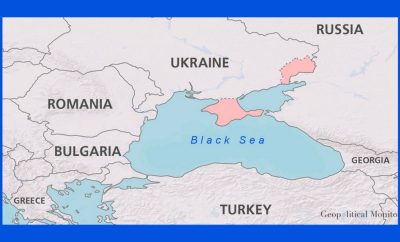
Brookings: Democracy & Disorder: The struggle for influence in the new geopolitics
At the heart of the new era of geopolitical competition is a struggle over the role and influence of democracy in the international order.
This dynamic has unfolded rapidly since the 2008 global financial crisis. Recent years have witnessed regional and global power plays by Russia and China. Their international efforts are usually cast as moves to establish spheres of influence, but they are broader than that. Competition between great powers is over nothing less than the future democratic character of the international system. Both Russia and China, using different means and with different strength, seek to achieve three objectives: to develop military and economic spheres of influence in their regions; to weaken democratic institutions and norms that challenge their own internal legitimacy; and to diminish Western dominance of the international order. To date, the West’s response has been insufficient to the challenge.
2019 marks the third decade of a world that has been largely free of the risk of direct great power conflict. Thirty years ago, the fall of the Berlin Wall and democratic openings across Central and Eastern Europe not only heralded the fall of the Soviet Union, but also symbolized the widespread appeal among citizens for a democratic model of governance. The quarter-century that followed was unique in world history: For the first time, democratic states dominated the structure of world power with neither a peer military competitor nor a rival model of governance with which to contend. The United States, in particular, stood unrivaled on the world stage, exercising global unipolar reach.
It is in vogue now to look back at the period of American hyperpower as one of over-extension and overreach, and to focus near exclusively on America’s Middle East wars. As consequential as those were, the dynamics of that period were wider and more nuanced. It was an era that saw multilateralism flourish and wars of all forms decline (although terrorist acts did not). Global GDP rose and the percentage of the world’s population living in absolute poverty declined steadily. There was cautious optimism about trends toward great power cooperation and away from proxy warfare—an optimism that was interrupted by 9/11 and the Iraq War, but not reversed.
This was also an era that laid the seeds of present-day challenges. Advances in technology and globalization, spurred by lower trade barriers, boosted global GDP but also led to the dislocation of middle-class livelihoods in many Western societies, sowing political tensions.
Now, in the wake of the global financial crisis, two critical dynamics have unfolded concomitantly. First, the powerful democracies of the trans-Atlantic community (the bulwark of the Western-led order) are facing political turmoil at home and setbacks in the liberal quality of their own governments.
The key findings of the “Democracy & Disorder” project make for stark reading.
The Democracy & Disorder project
In a collection of 26 policy briefs, Brookings experts examine domestic and international challenges to democracy and offer a range of recommendations for preserving it.
The struggle for influence in the new geopolitics
A new report distills key takeaways from the project, including the costly implications of democratic backsliding, the resilience of democracies in parts of Asia and Africa, and more.
Watch: What today’s geopolitical competition means for democracy
As Russia and China continue their regional and global power plays, a new video highlights the urgent need for international cooperation to strengthen democracy.
Watch the video | Listen to a new podcast with project authors
Πηγή: www.brookings.edu




